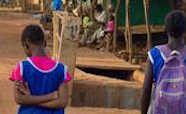University of Otago researchers are looking in depth at the big picture to find and address health inequalities adversely affecting children and their families. We share our findings here and overseas.
A Better Start National Science Challenge
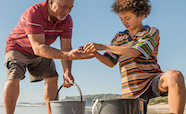 Better science together for a better start in life
Better science together for a better start in life
Our children are our future, we want to give them the best possible start in life. Getting a good start includes being a healthy weight, learning successfully and being mentally well. That's what all families, whānau and communities want for their tamariki. But obesity, learning and mental health are challenges for some children.
Our mission is to find better ways to predict, prevent and treat obesity, learning and mental health problems in children and teenagers.
University of Otago researchers contribute in the Science Leadership Team and in projects.
E Tipu e Rea—Grow and Branch Forth
Email contact@abetterstart.nz
Web www.abetterstart.nz
Centre for International Health
The Centre for International Health facilitates and promotes research to contribute to the understanding and improvement of health in under-resourced countries, and focuses on postgraduate training and strategic mentorship of leaders.
Researchers interests include:
- Anaemia and micronutrient deficiencies, child under-nutrition, and effectiveness of maternal and child health interventions
- Mycobacterium tuberculosis infection and disease, Streptococcus pneumoniae carriage, disease, and vaccination
- The syndrome of fever in resource-limited areas, Salmonella and other invasive bacterial infections, bacterial zoonoses, diagnostics and ethics in global health
Child health research in Indonesia
Email cih@otago.ac.nz
Web otago.ac.nz/internationalhealth
Christchurch Health and Development Study
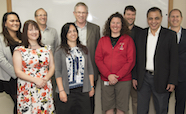 The Christchurch Health and Development Study (CHDS) has been in existence for 40 years. During this time we have followed the health, education and life progress of a group of 1,265 children born in the Christchurch (New Zealand) urban region during mid-1977.
The Christchurch Health and Development Study (CHDS) has been in existence for 40 years. During this time we have followed the health, education and life progress of a group of 1,265 children born in the Christchurch (New Zealand) urban region during mid-1977.
The cohort has been studied from infancy into childhood, adolescence and adulthood. Data gathered over the course of the study now comprises some 50 million characters of information, with which the study has published over 500 scientific papers, reports, books and book chapters describing the life history of the CHDS cohort.
In 2019, we completed our participant interviews for their 40-year assessment.
CHDS current research objectives
Email CHDS.UOC@otago.ac.nz
Web otago.ac.nz/christchurch/research/healthdevelopment
Department of Paediatrics and Child Health (DSM)
Improving health care for children.
The Department of Paediatrics and Child Health at the Dunedin School of Medicine has a long and proud tradition for teaching and research.
The Department holds positions of national leadership in the form of:
- Curatorship of the National Mortality Review Data Group
- Hosting of the New Zealand Paediatric Surveillance Unit
- New Zealand Child and Youth Epidemiology Service
Email pch.admin@otago.ac.nz
Web otago.ac.nz/paediatrics-child-health/research
Health, Environment and Infection Research Unit (HEIRU)
 The Health, Environment and Infection Research Unit is a collaboration of researchers focused on the impact of infectious diseases and adverse environmental factors on population health. We use a range of research methods to investigate these health concerns; to identify effective interventions to reduce the burden of disease and inequalities; and to support the move to greater environmental sustainability. HEIRU aims to provide evidence-based recommendations and advice to support New Zealand and international agencies and practitioners in their disease prevention and control activities.
The Health, Environment and Infection Research Unit is a collaboration of researchers focused on the impact of infectious diseases and adverse environmental factors on population health. We use a range of research methods to investigate these health concerns; to identify effective interventions to reduce the burden of disease and inequalities; and to support the move to greater environmental sustainability. HEIRU aims to provide evidence-based recommendations and advice to support New Zealand and international agencies and practitioners in their disease prevention and control activities.
Email michael.baker@otago.ac.nz
Webotago.ac.nz/wellington/publichealth/research/heiru
Health Inequalities Research Programme (HIRP)
 The Health Inequalities Research Programme is a longstanding programme of research hosted by the Department of Public Health, University of Otago, Wellington. HIRP encompasses a series of research projects including the New Zealand Census Mortality and CancerTrends Study (NZCMS/CT), the Healthier Lives National Science Challenge, and the Virtual Health Information Network (VHIN). The aim of HIRP is to capitalise on New Zealand's Integrated Data Infrastructure (IDI) to provide information to influence and support policies and programmes that will reduce inequalities in health.
The Health Inequalities Research Programme is a longstanding programme of research hosted by the Department of Public Health, University of Otago, Wellington. HIRP encompasses a series of research projects including the New Zealand Census Mortality and CancerTrends Study (NZCMS/CT), the Healthier Lives National Science Challenge, and the Virtual Health Information Network (VHIN). The aim of HIRP is to capitalise on New Zealand's Integrated Data Infrastructure (IDI) to provide information to influence and support policies and programmes that will reduce inequalities in health.
Email hilary.day@otago.ac.nz
Web otago.ac.nz/wellington/publichealth/research/hirp
He Kainga Oranga / Housing and Health Research Programme
 He Kainga Oranga, the Housing and Health Research Programme, examines and clarifies the links between Housing and Health. Although the association between poor housing and ill health is known, the links that make up the causal chain have until recently been poorly understood. Conducting our own studies and examining existing evidence enables us to identify and evaluate housing-related interventions to improve individual, family and community health. Our multi-disciplinary team has expertise in both qualitative and quantitative disciplines.
He Kainga Oranga, the Housing and Health Research Programme, examines and clarifies the links between Housing and Health. Although the association between poor housing and ill health is known, the links that make up the causal chain have until recently been poorly understood. Conducting our own studies and examining existing evidence enables us to identify and evaluate housing-related interventions to improve individual, family and community health. Our multi-disciplinary team has expertise in both qualitative and quantitative disciplines.
- Housing and childhood respiratory illness
- Rheumatic fever and housing conditions
- Cool? Exploring fuel poverty with youth
Email healthyhousing@otago.ac.nzWeb healthyhousing.org.nz
The Infection Group
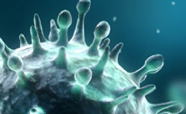 The Infection Group are interested in all aspects of human infection, and our research aims to provide new insights into the prevention, management, surveillance and control of infections of global importance. We are a research collaboration between the University of Otago and the Canterbury District Health Board, based in Christchurch, with members and collaborators in other centres.
The Infection Group are interested in all aspects of human infection, and our research aims to provide new insights into the prevention, management, surveillance and control of infections of global importance. We are a research collaboration between the University of Otago and the Canterbury District Health Board, based in Christchurch, with members and collaborators in other centres.
Email the-infection-group@otago.ac.nz
Web otago.ac.nz/infection-group
New Zealand Child and Youth Epidemiology Service
 We collate and disseminate information on the health of children and young people in New Zealand.
We collate and disseminate information on the health of children and young people in New Zealand.
The New Zealand Child and Youth Epidemiology Service (NZCYES) was established in 2004, and has been hosted by the University of Otago since March 2009 within the Paediatrics section of the Department of Women's and Children's Health in the Dunedin School of Medicine.
Through its annual report series, the New Zealand Child and Youth Epidemiology Service:
- Provides the New Zealand health sector with up to date and accurate information of the health of children and young people
- Highlights areas where there are disparities in child and youth health, or where inequities in service provision mean that children and young people are not reaching their full potential
- Contributes to the evidence base for policy development in child and youth health
- Shares the Service's expertise with other researchers interested in improving the wellbeing of children and young people.
Email nzcyes@otago.ac.nz
Web otago.ac.nz/nzcyes
The New Zealand Mortality Data Review Group—Te Rōpū Kohi Pitopito Mōhiotanga mō te Taka Mate
The NZ Mortality Review Data Group—Te Rōpū Kohi Pitopito Mōhiotanga mō te Taka Mate, was established in 2003 to support the national Child and Youth Mortality Review Committee (CYMRC). We now also support the Perinatal and Maternal Mortality Review Committee (established 2006), and since 2016, the Perioperative Mortality Review Committee.
We have a contract with the Health Quality & Safety Commission to receive and store data, manage a database and provide data and research support for the above committees. We are also heavily involved in the CYMRC research programme. Having been involved in mortality review from the inception of the first still-existing national mortality review committee in 2002, we have a wealth of experience and expertise in this area.
The group receives information from a variety of sources, such as health, coronial, transport, water safety and child protection data, and data gained from the process of local review of each death, which is stored in a comprehensive database. This is a valuable resource that is being used increasingly to research areas of interest and importance.
We have expertise in mortality research, the process of mortality review, and the development of IT systems to support the above. Our team is made up of data and IT experts, research analysts and a clinical epidemiologist.
Email mortality.group@otago.ac.nz
Web https://nzmrdg.otago.ac.nz/nzmrdg/
New Zealand Paediatric Surveillance Unit
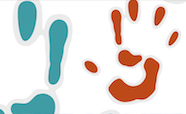 The New Zealand Paediatric Surveillance Unit (NZPSU) was established with funding from the Ministry of Health in order to:
The New Zealand Paediatric Surveillance Unit (NZPSU) was established with funding from the Ministry of Health in order to:
- Operate a system for monitoring acute flaccid paralysis, as part of the global certification of eradication of poliomyelitis, required by the World Health Organization
- Facilitate national surveillance and improve the knowledge of uncommon childhood conditions in New Zealand
The NZPSU is part of the Department of Women's and Children's Health, Dunedin School of Medicine.
Email nzpsu@otago.ac.nz
Web otago.ac.nz/nzpsu
Ngāi Tahu Māori Health Research Unit
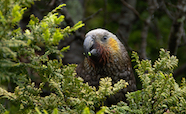 The Ngāi Tahu Māori Health Research Unit is a partnership between Te Runanga o Ngāi Tahu and the Dunedin School of Medicine of the University of Otago. The Unit collects, collates, interprets and publishes information, data and statistics on Māori health issues.
The Ngāi Tahu Māori Health Research Unit is a partnership between Te Runanga o Ngāi Tahu and the Dunedin School of Medicine of the University of Otago. The Unit collects, collates, interprets and publishes information, data and statistics on Māori health issues.
Our child health collaborations include:
Email emma.wyeth@otago.ac.nz
Web otago.ac.nz/maori-health-research
Otago Global Health Institute (OGHI)
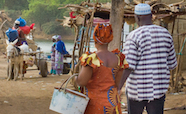 At the Otago Global Health Institute (OGHI), we foster partnerships to help solve global health problems. OGHI harnesses both technical and collaborative strengths across the Divisions, Schools, and Departments of the University of Otago to make them available to share with partners as we seek together to find solutions to complex global health problems.W
At the Otago Global Health Institute (OGHI), we foster partnerships to help solve global health problems. OGHI harnesses both technical and collaborative strengths across the Divisions, Schools, and Departments of the University of Otago to make them available to share with partners as we seek together to find solutions to complex global health problems.W
Email globalhealth@otago.ac.nz
Web otago.ac.nz/global-health
Pacific Health Research at Otago
 Talofa lava, kia orana, malo e lelei, fakaalofa lahi atu, bula vinaka, malo ni, halo ola keta, mauri, fakatalofa atu, and warm Pacific greetings!
Talofa lava, kia orana, malo e lelei, fakaalofa lahi atu, bula vinaka, malo ni, halo ola keta, mauri, fakatalofa atu, and warm Pacific greetings!
We're celebrating our Pacific health research in the Division of Health Sciences.
Learn about what's going on in Pacific health research, how we can support researchers, and where to start if you're excited about research.
In Pacific child health read more about the research interests of an established professional, and a project from a young researcher:
- Dr Kiki Maoate: Childhood infection and paediatric surgery
- Ashleigh Raikuna: Severe childhood dental caries
Email vot@otago.ac.nz
Web otago.ac.nz/pacific-health-research
Sir John Walsh Research Institute
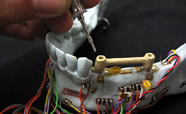 The Sir John Walsh Research Institute is the research arm of the Faculty of Dentistry at the University of Otago.
The Sir John Walsh Research Institute is the research arm of the Faculty of Dentistry at the University of Otago.
Oral health is essential for wellbeing. We lead the advancement of oral health research, and practice in New Zealand by combining the strengths of biological, clinical, and public health expertise. From the molecular level through biological systems to the health of populations, our research is improving oral health in New Zealand.
Our research objectives are:
- To develop clinical research that translates discoveries into measurable health benefits
- To maintain fundamental research that underpins our teaching
We are uniquely placed within the Faculty of Dentistry at the University of Otago—the only dental school in New Zealand, and ranked highly worldwide. This enables researchers and clinicians to work together to solve specific oral health problems and to rapidly translate findings into improved clinical practice.
Read more about some of our work in child oral health:
- Further funding success (Transformer Tooth and Hall Technique)
- Dunedin dental study "most read" article
Email sjwri.admin@otago.ac.nz
Web otago.ac.nz/sjwri/research
Social and Behavioural Research Unit
The Cancer Society Social and Behavioural Research Unit was established in 1990 with core funding from the Cancer Society of New Zealand and the support of the University of Otago. Presently it has research programmes operating in our six priority areas of tobacco control, ultraviolet radiation exposure, physical activity and nutrition, psycho-social-spiritual factors, alcohol, and Hauora Māori.
Email sbru@otago.ac.nz
Web otago.ac.nz/sbru
Social Justice and Child Protection Aotearoa (SJCP)
The SJCP research network is comprised of researchers, academics, educators, policymakers, practitioners and people with lived experience of the child protection system. Our aim is to describe, analyse and reduce the inequities that shape people's trajectories through the system, and people's experiences of it. Addressing these requires a focus on multiple factors ranging from social and economic conditions, issues related to the distribution of authority and resources under te Tiriti, and the distribution, roles and responses of organisations in this context. While our focus is research, we define that broadly and have a strong emphasis on research collaborations across sectors and disciplines, social impact and advocacy.
Visit Social Justice and Child Protection Aotearoa
Te Rōpū Rangahau Hauora A Eru Pōmare
 Te Rōpū Rangahau Hauora a Eru Pōmare strives to create a Kaupapa Māori space committed to improving Māori health outcomes and eliminating inequalities through quality science and ongoing theoretical development. It takes a rights-based approach consistent with the Treaty of Waitangi, and is engaged with community through a spectrum of influence from community development, policy advocacy, research dissemination and Māori health research workforce development.
Te Rōpū Rangahau Hauora a Eru Pōmare strives to create a Kaupapa Māori space committed to improving Māori health outcomes and eliminating inequalities through quality science and ongoing theoretical development. It takes a rights-based approach consistent with the Treaty of Waitangi, and is engaged with community through a spectrum of influence from community development, policy advocacy, research dissemination and Māori health research workforce development.
Read more about our work for young mothers:
Email bridget.robson@otago.ac.nz
Web otago.ac.nz/wellington/departments/publichealth/research/erupomare
